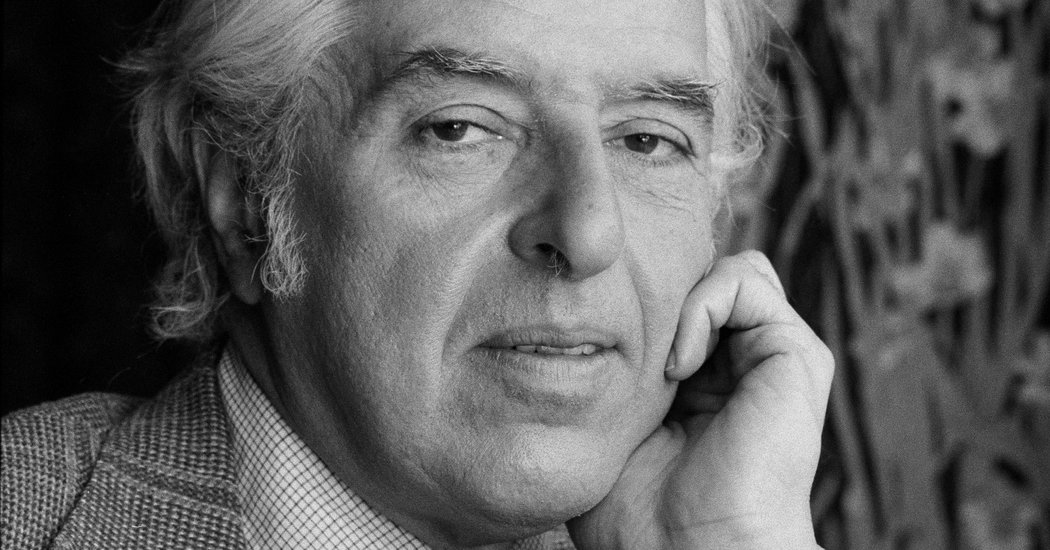When Milton Moskowitz set out to evaluate America’s best companies to work for, he took a novel approach: He talked to their employees.
He and a colleague, Robert Levering, spent more than a year traveling the country, interviewing hundreds of workers in dozens of cities. The resulting book, “The 100 Best Companies to Work For in America,” was a best seller when it was published in 1984, and it laid the groundwork for similar lists, both by Mr. Moskowitz and by imitators around the world.
“A good workplace,” he wrote in The New York Times in 2007, “is one where management trusts the employees and where employees trust the management.”
Mr. Moskowitz died on March 5 at his home in Mill Valley, Calif. He was 91. His brother, Gerald, confirmed the death.
The lists, which are still published each year, have become a staple of corporate branding campaigns. But to Mr. Moskowitz, they were part of a lifelong inquiry into the role of business in society.
“He never wavered in his commitment to labor justice and social justice,” his stepson Laird Townsend said in a phone interview. “He just brought it inside corporate environments.”
Mr. Moskowitz began his career as a wire-service reporter, then worked on Madison Avenue for the advertising agency J. Walter Thompson. But he was more comfortable observing corporate America from the outside. In 1968 he began writing a biweekly newsletter, Business & Society, which focused on corporate social responsibility at a time when that phrase had not yet become a public-relations buzzword.
Mr. Moskowitz wrote about a range of causes, among them environmentalism, civil rights and opposition to the Vietnam War. In one early newsletter, he noted that 20 years after Jackie Robinson helped integrate Major League Baseball, only one major American corporation had a black director. He was later able to report progress: By 1971, 16 companies, including Chase Manhattan Bank and CBS, had appointed black directors.
Knowing that his audience was made up of business executives, Mr. Moskowitz made his case for social responsibility with an eye toward the bottom line.
“The theory, which I subscribe to, is that companies blessed with socially sensitive managements will over the long term outperform their competitors,” he wrote in The Times in 1973. “They will do so because they are more attuned to the needs of society.”
The evidence came later, at least when it came to one element of social responsibility that Mr. Moskowitz cared about: the treatment of workers.
In 2007, a researcher at London Business School published a paper finding that a stock portfolio made up of companies on the Fortune lists outperformed industry benchmarks. That paper won an award for research into responsible investing that is named for Mr. Moskowitz.
Milton Ralph Moskowitz, known as Milt, was born on Sept. 1, 1927, in Yonkers to Morris and Florence (Goodman) Moskowitz, Jewish immigrants from Eastern Europe. His father worked in a fur factory.
In addition to his brother and his stepson Laird, Mr. Moskowitz is survived by his wife, Elizabeth Rollins; two sons, Jonah and Eben; a daughter, Abigail Moskowitz; three other stepsons, Lee Townsend Jr., Blaine Townsend and Salim Rollins; three stepdaughters, Leigh Ann Townsend, Leslie Parks-Bailey and Fatima Rollins; and seven step-grandchildren. His first marriage, to Jean Rae Mell, ended in divorce in 1982; his second wife, Carol Townsend, died in 1995. A brother, Lawrence, died last year.
Mr. Moskowitz started his journalism career early. He edited campus publications as a student, first at New York University and then at the University of Chicago, and covered sports for an Army newspaper while stationed at Fort Benning, Ga. He would later tell friends that his time in the segregated South led him to take on racial equality as a cause.
He earned a bachelor’s degree from the University of Chicago and enrolled in a master’s program there but dropped out after getting married. Years later, he asked the university if his books — he wrote seven altogether — could qualify as a thesis. The university granted him a master of arts degree in 2008.
After college, he worked as a copy boy at The Chicago Sun before landing a reporting job at the International News Service. He later worked for Reuters and Advertising Age, and for 15 years wrote a business column, “The Money Tree,” for The San Francisco Chronicle.
Mr. Levering, his longtime co-author, said Mr. Moskowitz always saw himself as a reporter.
“He was skeptical of ideologues of any sort,” Mr. Levering said in a phone interview. “He didn’t buy that bosses were all bad and workers were all good. He was a true journalist.”
That instinct served him well when an editor at the publishing house Addison-Wesley suggested that Mr. Moskowitz and Mr. Levering write a book on the 100 best places to work. They were not immediately taken with the idea; Mr. Moskowitz later said that they “weren’t sure they could find 100 worthy workplaces.”
Nor could they easily find information on the companies they were considering for the list. So they hit the road, visiting companies and asking workers two basic questions: “What makes this a great place to work?” and “What would make it a better place?”
This labor-intensive approach was risky: Mr. Levering recalled that they put the travel expenses on their personal credit cards once their advance ran out. Fortunately, the book was a hit.
A voracious reader with a near-perfect memory for names and dates, Mr. Moskowitz remained active into his final years. He helped compile his final “best companies” list for Fortune in 2015.

